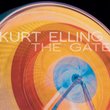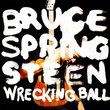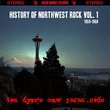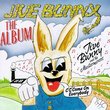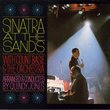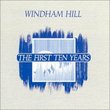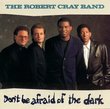| All Artists: Albert Ayler Title: Impulse Story Members Wishing: 3 Total Copies: 0 Label: Impulse Records Original Release Date: 1/1/2006 Re-Release Date: 6/6/2006 Genres: Jazz, Pop Style: Avant Garde & Free Jazz Number of Discs: 1 SwapaCD Credits: 1 UPC: 602498551035 |
Search - Albert Ayler :: Impulse Story
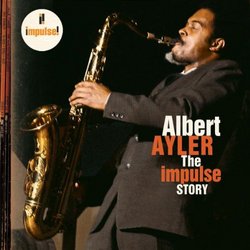 | Albert Ayler Impulse Story Genres: Jazz, Pop
|
Larger Image |
CD DetailsSimilarly Requested CDs
|
CD Reviews4 1/2 stars-- a fine overview of Ayler's late career. Michael Stack | North Chelmsford, MA USA | 06/14/2006 (4 out of 5 stars) "While it's inclined to have been a wildly unpopular selection of songs, "Albert Ayler: The Impulse Story" prevents a balanced account of Ayler's tenure on Impulse! during the latter half of his career. Ayler's last recordings are often maligned, perhaps somewhat unfairly, but his fans, and they are heavily represented here, but given that only six albums were released on Impulse! (and the last three fall into this unpopular category), the track selection should be of no surprise. Still, even the earlier Impulse! work seems to be fairly unpopular. Ayler had begun to codify his ideas pretty strongly and his performances reflected this. The album opens with three tracks that are drawn from "Live in Greenwich Village: The Complete Impulse! Records". "Holy Ghost", the earliest recording on this set, from 1965, paints a clear picture of early Ayler-- performing on tenor and joined by his brother Don on trumpet, cellist Joel Freeman, bassist Lewis Worrell, and drummer Sunny Murray, the piece consists of a brief, frantic theme statement followed by freewheeling solos, with free associative performances by the strings and Murray below (with Murray adding his odd singing to the mix). The performance is not for the feint of heart. By late 1966, where the next two recordings are drawn, Ayler had begun to change a bit-- his performances were more theme oriented, with briefer, less associative improvs, and while it was still fierce and powerful music, its roots not only in the marches that Ayler adored but also in gospel were more apparent, with Ayler leading the call and his brother Don on response on "Truth is Marching In" (a medley of several themes run through by the Ayler brothers backed by violinest Michel Samson, bassists Henry Grimes and Bill Folwell and drummer Beaver Harris). The other cut from '66 finds Ayler backed only by piano (thought to be Call Cobbs) and a nearly inaudible bass on "Angels". Here, Ayler is meditative and melodic over the oddly timbred piano lines opening beneath him-- if density and energy were the recipe on the other two cuts, melody and earnestness are what's cooking here. Ayler's playing is no less spectacular, no less powerful, just quite different. This pretty much leaves behind the commonly accepted material in Ayler's catalog-- he recorded a coda to this time on the album "Love Cry" in 1967. Eschewing extended improv, instead Ayler ran pretty much straight with his themes ("Love Cry" and "Bells" are represented here) backed by his brother Don on trumpet, bassist Alan Silva and drummer Milford Graves. This particular recording is one of my favorites in Ayler's catalog-- it may not have the long, extended collective improvs, but this quartet can squeeze more into a three minute theme (or themes) statement than most bands could fit in an hour, and the music is stunning. What followed is the album that draws most of the criticism and ire-- the claims of sellout, the feeling that Ayler's career ended in 1968. Depending on who you believe, either producer Bob Thiele or Ayler himself decided it was time for Ayler to work with a rock band (although the music that came out was more r&b tinged). Ayler assembled longtime partners Call Cobbs on keyboards and Bill Folwell on electric bass and rounded out his quartet with Bernard Purdie on drums for a much more straightahead, r&b feel, featuring vocals by his girlfriend Mary Maria, singer Rose Marie McCoy and Ayler himself. The material is very, well, different, is the only way to describe it. Still, from the first track here, "New Grass/Message From Albert", you wouldn't know it-- Ayler's sax screeches and wails in the altissimo register in one of his best performances on record, backed only by Folwell's squirrelly bass before cross fading into an oddly schmaltzy lounge band with Ayler discussing his musical change above it. And certainly "Free At Last", the other track from that session, illustrates this-- a swinging gospel arrangement with chanted vocals, overdone horns, and a lead vocal by Ayler (whose singing, while not exactly fantastic, is as full of passion as his sax playing) and a superb r&b solo, it's not the music he played in the past, but it doesn't make it bad. The last sessions Ayler did were a year later in 1969 and are as different from "New Grass" as it was from what came before. Ayler and Mary Maria, backed by pianist Bobby Few, bassists Folwell and Stafford James and drummer Muhammed Ali, perform much more in a free jazz vein. The material was split over "Music is the Healing Force of the Universe" (the last album Ayler released in his lifetime) and the posthumous "The Last Album". These pieces are closer to the free jazz of late period Coltrane than anything else, with Ayler's penchant for marching themes totally subsumed. The sharp criticism levied against this is leftover from people who dismiss these albums of more of "New Grass" who probably would really enjoy this, although personally I've found this material among the least satisfying of Ayler's albums, simply because it doesn't break as much new ground. His performances are fine, but he sounds like every other post-Coltrane tenor. Two days after these sessions, Ayler returned to the studio with Canned Heat guitarist Henry Vestine for a few cuts, including "Untitled Duet" which pits Ayler on bagpipes against Vestine's guitar. Vestine is seeped in distortion and blues, and provides an ideal framework for Ayler's explorations, which sound remarkably like a nasally version of his tenor. As a set, it provides a reasonable overview of Ayler's tenure with Impulse, although the omission of "Ghosts" is somewhat curious-- this is Ayler's most famous composition, an extraordinary theme that seems instantly recognizable and is one of those pieces that grabs the listener with its intensity-- Ayler recorded it numerous times during his career, including twice for Impulse (once for "Love Cry" and once reinvented for "New Grass"). Either recording in my assessment would have better served in place of one of the tracks from those records. Also of note is the two tracks from "The Last Album", the only pieces here not available on CD and therefore the bits of real value to a collector. Personally, I always hope these sort of retrospective pieces will get people to look past their criticisms and reevaluate some of Ayler's later music-- they're good records, quite different from what he did before, but well worth a listen. For newcomers to Ayler, this is a reasonable overview of his later career, although I'd recommend starting with "Love Cry" over even this set." Great material but there was room for more . . . Allan Evans | 07/09/2006 (4 out of 5 stars) "The neglected "Last Album" deserves reissue in its entirety and Impulse had enough room here to include more tracks from these sessions. I hope they will search for any unpublished pieces and do justice to these final days, which are as moving as any of the earlier and more Modernist style. As a whole it is filled with gripping pieces."
|

 Track Listings (9) - Disc #1
Track Listings (9) - Disc #1